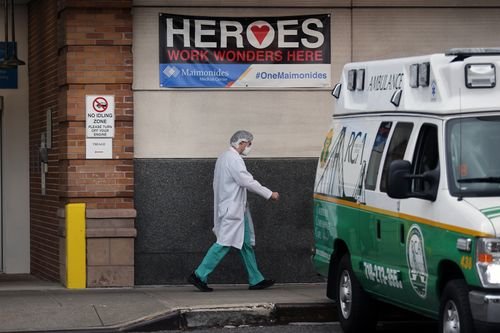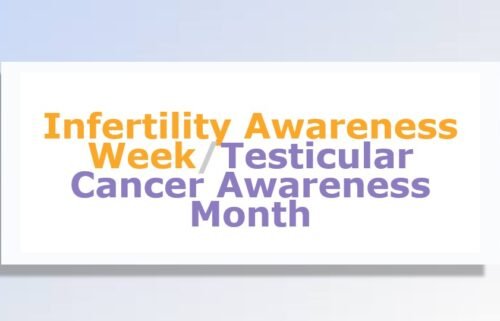Vaccines won’t end Covid so keep wearing your mask, top health official says

Coronavirus vaccines will provide some light at the end of the tunnel, but they alone won’t mean an end to Covid-19, one leading health official said Friday.
“I would like to say vaccines do not equal zero Covid,” said Dr. Michael Ryan, the executive director of the World Health Organization’s Health Emergencies Program. “Vaccines and vaccination will add a major, major, powerful tool to the toolkit that we have.
“But by themselves they will not do the job.”
The US is seeing the worst days of the pandemic and had its highest day of new cases — 217,664 — and deaths — 2,879 — on Thursday, according to Johns Hopkins.
On Friday, there were 101,276 people hospitalized with Covid-19, breaking the previous record set on Thursday, according to the Covid Tracking Project. This is the third consecutive day that the US has remained above 100,000 current hospitalizations.
More than 14.3 million cases and more than 278,000 deaths have been recorded in the US, according to Johns Hopkins University.
For months, health experts have said that to prevent spread of the virus, people should keep their distance from others, wash their hands and wear their masks. As they learned more about this coronavirus and the disease it causes — Covid-19 — officials have amended their recommendations.
The US Centers for Disease Control and Prevention on Friday strengthened its guidance for face coverings, saying that wearing a mask is critical and sometimes people should wear them even in their homes.
“Because the highest risk for transmission has been documented among household contacts of Covid-19 patients, keeping the household safe requires physical distancing, using the other public health strategies summarized here, and, in particular, consistent and correct use of face masks (outside the household and in some circumstances within the household) to prevent introduction and transmission of (the virus),” the CDC said.
The CDC also said that while face coverings should be worn to cut down on possible transmission of the virus, they also can provide some protection to the person wearing one.
Officials have cautioned that coronavirus cases will rise during the winter as more people stay inside, and as people gather for holidays.
Cases, hospitalizations and deaths are at an all-time high, but vaccines will help once they are authorized.
States are now preparing to roll out the vaccines to frontline health care workers and people at long-term care facilities. Ohio was one of the states that on Friday released its plan.
“During Phase 1, vaccine supply will be limited, and Ohio will focus on vaccinating those who wish to be vaccinated in the critical Phase 1A groups,” according to a news release from the office of Ohio Gov. Mike DeWine.
Ohio expects to receive 660,000 doses in before the end of December.
In New Jersey, where hospitals are preparing to receive 76,000 doses of the vaccine in the first shipment, Gov. Phil Murphy called vaccine distribution a “game changer.” But he warned New Jerseyans not to expect restrictions to be lifted soon.
“Covid isn’t going to simply vanish just because there are vaccine doses in a freezer waiting for distribution,” Murphy told reporters.
Vaccine provides full immunity to virus a week after second dose
One of the questions people have about the vaccine is how long it will take for the vaccine to give someone immunity to the virus.
Dr. Anthony Fauci, director of the National Institute of Allergy and Infectious Diseases, said full immunity to the virus develops a week to 10 days after people get the second of two doses of a vaccine.
“OK, so both of the vaccines that we’re talking about — the Moderna vaccine and the Pfizer vaccine — are what’s called a prime boost, one injection followed in (three to four) weeks by another injection,” Fauci told CNN’s Dr. Sanjay Gupta and Anderson Cooper on Friday during CNN’s Coronavirus Town Hall.
People start to develop immunity after the first dose of the vaccine, Fauci said, but it’s not optimal. “After the second dose, you get optimal immunity anywhere from seven to 10 days after the second dose,” he said.
The vaccines appear to provide protection that is at least as strong, if not stronger than, the immunity that you find in a person who has had Covid-19.
“If you look at the vaccine, the level and quality of neutralizing antibodies was comparable to and even better than what you see in the convalescent plasma of people who actually were infected and developed an immune response,” he said. “It’s at least as good as the response associated with natural infection.”
The US Food and Drug Administration’s vaccine advisers meet next Thursday to consider Pfizer’s emergency use authorization application, and December 17 for Moderna’s.
Health care systems under stress
Leading health officials say rising cases will be followed by more hospitalizations that could cripple health care systems across the country. Hospitals and experts all over the US are sounding the alarm.
Marvin O’Quinn, president and chief operating officer of CommonSpirit Health, which runs hospitals in 21 states, told CNN that all its hospitals are getting more patients.
“We are now up to roughly 2,100 positive cases in our hospitals. That’s an increase of almost 70% since November 11,” O’Quinn said. “We’re seeing about 70 to 100 new cases every day.”
In Pennsylvania, just under 5,000 people are hospitalized with Covid-19, and two parts of the state are inching closer to staffing shortages, Secretary of Health Dr. Rachel Levine said Thursday.
“It is so important to remember that all of us have to be mindful, that we all have a role to play in what is happening in the hospitals right now,” Levine said. “You might not need hospital care right now; you might not have a loved one in the hospital right now. But what is happening in our hospitals has a direct impact on you.”
In the past two months, the positivity rate in Miami-Dade County, Florida, has spiked 91%, the county’s Chief Medical Officer Peter Paige said Friday. Hospitalizations spiked 139%.
Maryland health officials reported 3,792 new Covid-19 cases Friday, breaking the state’s previous record for daily cases, said the Department of Health.
This is the first time Maryland has passed 3,000 cases in a day, CNN’s tally shows.
Growing acceptance of masks, vaccine
Most US adults — 72% — say it bothers them when people in public do not wear masks, according to a survey from the Pew Research Center. Far fewer adults — 28% — say it bothers them at least somewhat when stores require customers to wear masks for service.
Results showed 87% say they have worn a mask or face covering “all or most of the time” in stores and businesses over the past month. That includes 91% of Democrats and 81% of Republicans.
Pew also reported that 60% of respondents now say that if a Covid-19 vaccine were available today, they would take it.
Among those not willing to get the vaccine, about half of them — or 18% of US adults — say it’s possible they could decide to get vaccinated once more information becomes available, but 21% of US adults are “pretty certain” more information will not change their mind.
The survey was conducted between November 18 and 29 and included 12,648 respondents.
The Department of Health and Human Services launched its national ad campaign promoting awareness about forthcoming vaccines with a modest $150,000 ad buy on YouTube.
New strict measures
California hospitals are treating more than 9,900 Covid-19 patients, the highest level yet, according to data from the state’s Health Department. More than 2,200 of those patients are in intensive care units, which is also the highest number since the pandemic’s start.
The figure comes as Gov. Gavin Newsom announced a strict regional stay-at-home order. The order will go into effect 48 hours after ICU capacity drops below 15% in one of five regions, Northern California, the Bay Area, Greater Sacramento, the San Joaquin Valley or Southern California.
But six governments in the Bay Area aren’t waiting.
“It takes several weeks for new restrictions to slow rising hospitalizations and waiting until only 15% of a region’s ICU beds are available is just too late,” said San Francisco Health Officer Dr. Tomás Aragon. “Many heavily impacted parts of our region already have less than 15% of ICU beds available, and the time to act is now.”
The order will go into place Sunday in the combined city and county of San Francisco, the city of Berkeley and Contra Costa and Santa Clara counties followed by Alameda County on Monday and Marin County on Tuesday. The orders affect roughly 6 million people.
California added 22,018 new Covid-19 cases Friday, topping the state’s all-time high for daily positives that was set earlier this week. The total number of confirmed cases is 1.2 million.
Delaware Gov. John Carney announced Thursday a stay-at-home advisory, telling residents to avoid indoor gatherings with anyone outside their households from December 14 through January 11. The state also will require residents to wear cloth face coverings every time they’re indoors with someone who isn’t in their households, the governor’s office said.
“A vaccine is on the way but, make no mistake, we are facing the most difficult few months of this crisis,” the governor said in a statement. “I know we’re all tired of Covid-19 — but it’s not tired of us.”



